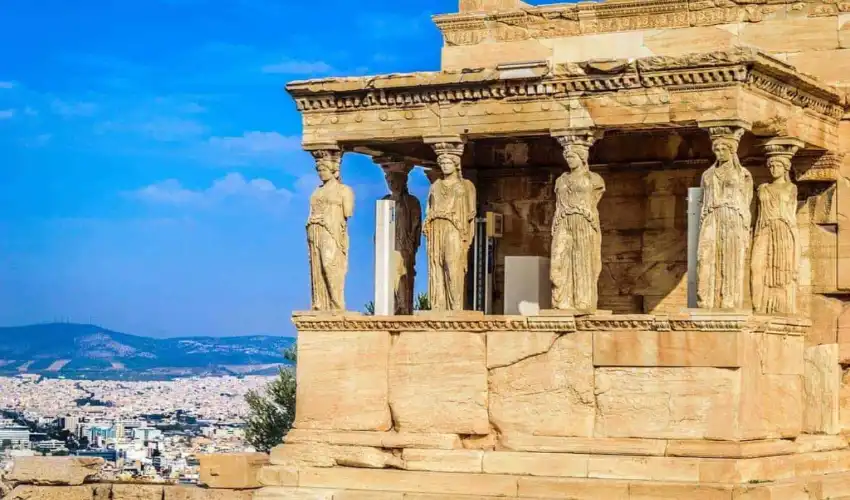
Ancient Wisdom: Ancient Texts Worth Reading for Life Lessons
Throughout history, ancient texts have provided invaluable insights into the human condition, offering wisdom that transcends time and culture. These works, penned by philosophers, scholars, and thinkers from diverse backgrounds, contain profound life lessons that continue to resonate today. From the philosophical musings of Confucius to the epic tales of Homer, these ancient texts are not only historical artifacts but also repositories of enduring wisdom. This article explores some of the most influential ancient texts worth reading for the life lessons they impart.
The Tao Te Ching by Laozi
The Tao Te Ching, attributed to the ancient Chinese philosopher Laozi, is a cornerstone of Taoist philosophy. Written in the 6th century BCE, this text is composed of poetic verses that explore the nature of the Tao (the Way) and how one should live in harmony with it. The Tao Te Ching emphasizes the importance of simplicity, humility, and non-action (wu wei). Its teachings encourage readers to align themselves with the natural flow of life, advocating for a balanced approach to existence. The text’s wisdom offers practical guidance on leading a serene and fulfilling life by embracing the natural order of the universe.
The Bhagavad Gita
Part of the Indian epic Mahabharata, the Bhagavad Gita is a 700-verse scripture that dates back to around the 2nd century BCE. This sacred text is a dialogue between Prince Arjuna and the god Krishna, who serves as his charioteer. In the midst of a great battle, Krishna imparts spiritual wisdom and guidance to Arjuna, addressing fundamental questions about duty, righteousness, and the nature of the self. The Bhagavad Gita explores themes of dharma (duty), karma (action), and bhakti (devotion), offering profound insights into the nature of existence and the path to spiritual enlightenment.
The Epic of Gilgamesh
One of the earliest known works of literature, The Epic of Gilgamesh originates from ancient Mesopotamia and dates back to around 2100 BCE. This epic poem recounts the adventures of Gilgamesh, the historical king of Uruk, and his quest for immortality. Through his journey, Gilgamesh encounters gods, mythical creatures, and profound existential questions. The text addresses themes such as the human condition, the search for meaning, and the acceptance of mortality. Its timeless lessons on friendship, courage, and the inevitability of death continue to resonate with readers today.
The Republic by Plato
Written in the 4th century BCE, The Republic by the Greek philosopher Plato is a foundational text in Western philosophy. This Socratic dialogue explores the nature of justice, the ideal state, and the role of the philosopher-king. Plato presents a vision of a just society governed by wisdom and reason, contrasting it with the flaws of contemporary political systems. The text delves into concepts such as the theory of forms, the allegory of the cave, and the tripartite nature of the soul. The Republic offers enduring insights into ethics, politics, and the pursuit of truth.
The Analects of Confucius
The Analects (or Lunyu) are a collection of sayings and ideas attributed to Confucius, compiled by his disciples in the 5th century BCE. This foundational text of Confucianism addresses topics such as morality, proper conduct, and the importance of education. Confucius emphasizes virtues such as filial piety, righteousness, and benevolence, advocating for the cultivation of moral character and the harmonious functioning of society. The Analects provide practical wisdom for personal development and social relationships, highlighting the value of ethical behavior and self-improvement.
The Iliad and The Odyssey by Homer
Homer’s The Iliad and The Odyssey are two of the most celebrated epic poems of ancient Greece, dating back to around the 8th century BCE. The Iliad focuses on the events of the Trojan War and explores themes of heroism, honor, and fate. The Odyssey chronicles the adventures of Odysseus as he attempts to return home from the war. Both epics offer rich portrayals of human nature, courage, and the complexities of fate and destiny. Homer’s works provide timeless lessons on perseverance, loyalty, and the impact of individual actions on the larger course of history.
The Torah
The Torah, comprising the first five books of the Hebrew Bible, is a foundational text in Judaism and has had a profound influence on Western religious and ethical thought. Written between the 12th and 5th centuries BCE, the Torah includes laws, narratives, and teachings that address the nature of God, moral conduct, and the covenant between God and the Israelites. Its stories and commandments offer lessons on justice, compassion, and the responsibilities of individuals and communities. The Torah’s impact extends beyond religious contexts, shaping concepts of ethics and morality in diverse cultures.
The Meditations by Marcus Aurelius
The Meditations is a series of personal writings by the Roman Emperor Marcus Aurelius, dating back to the 2nd century CE. This Stoic philosophical work is a reflection on the nature of life, virtue, and the practice of inner peace. Marcus Aurelius explores themes such as self-discipline, resilience, and the transient nature of existence. His reflections offer practical advice for managing challenges and maintaining equanimity in the face of adversity. The Meditations continues to be a valuable source of wisdom for those seeking to cultivate a philosophical approach to life and personal growth.
Conclusion
Ancient texts worth reading provide a window into the profound wisdom of past civilizations, offering timeless lessons that remain relevant today. From the philosophical teachings of Laozi and Confucius to the epic adventures of Homer and Gilgamesh, these works offer invaluable insights into the human experience. Their enduring wisdom guides readers in understanding themselves, their place in the world, and the principles of a meaningful life. Engaging with these ancient texts not only connects us to the intellectual and spiritual traditions of the past but also enriches our understanding of the present and the future.
